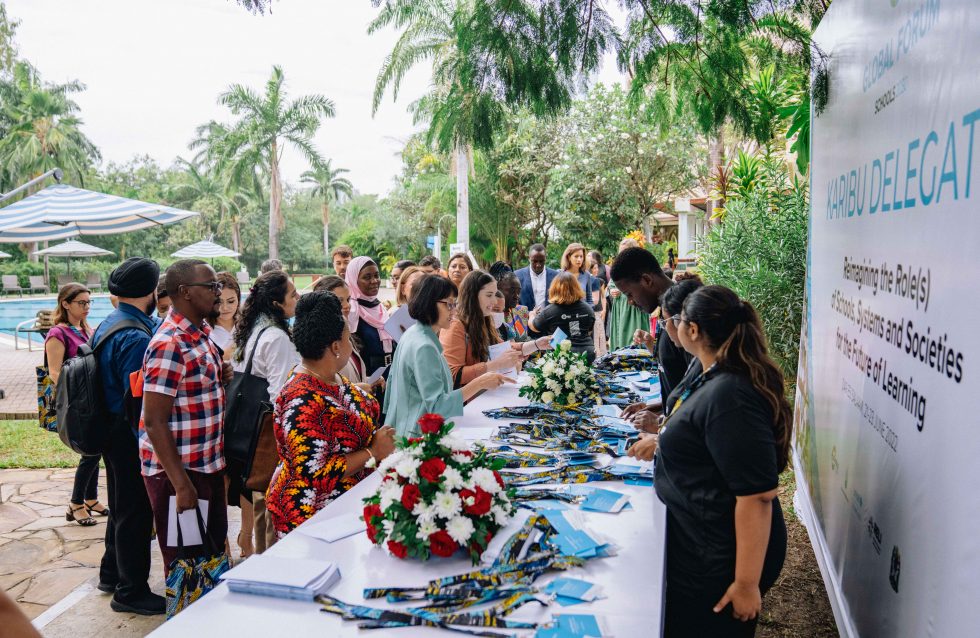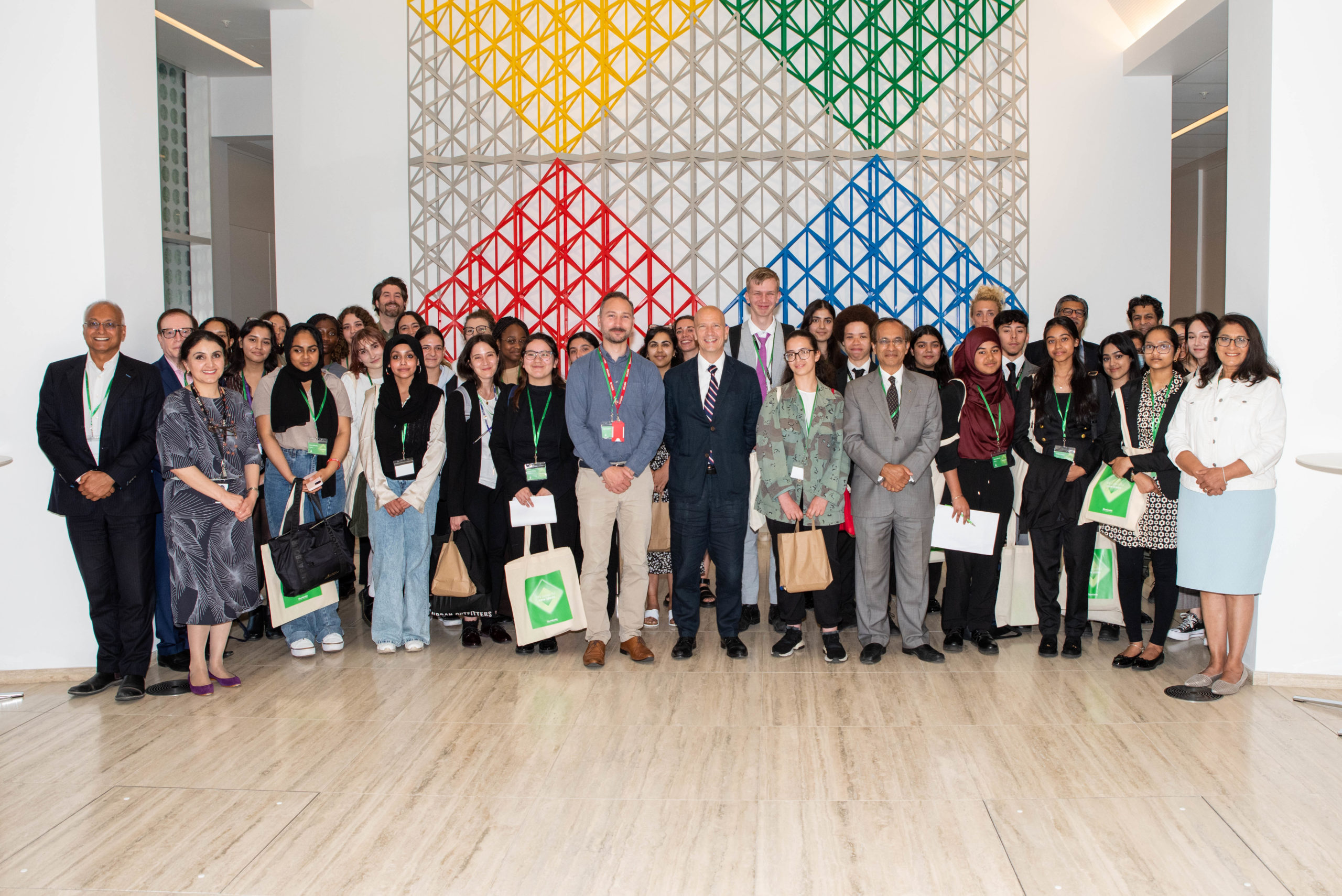In these unprecedented times, how to safeguard and advance the future of learning is the important topic that the Transforming Education Summit (TES) – UNESCO’s much anticipated side event at UNGA 2022 – seeks to address. This important global convening in New York will take place in-person for the first time since the pandemic and the implications of holding a live event are not lost on those in attendance – whilst much of the world is able to resume business as usual, the situation for education systems, teachers and students has not been nearly so simple. Pandemic-related school closures disadvantaged an entire generation of young people, many of whom have not returned to school. This has been particularly devastating for girls and for children who were already facing multiple barriers to education, including conflict, migration and extreme poverty.
It is against this challenging backdrop that Heads of Government, Ministers of Education and education leaders from around the world will gather in New York this month to elevate education to the top of the global political agenda and to mobilise action, ambition, solidarity and solutions to recover pandemic-related learning losses and sow the seeds to transform education in a rapidly changing world.
Schools2030 – AKF’s flagship education programme – convened its own Global Forum in June of this year in Dar es Salaam under the theme Re-Imagining the Roles of Schools, Systems and Societies for the Future of Teaching and Learning. The theme will be revisited at the Transforming Education Summit in New York with the leadership of Hon. Professor Mkenda, Minister of Education for Tanzania and Hon. Professor Costa, Minster of Education for Portugal. Co-hosted by these two UN Member states, AKF and UNICEF, and taking place on Day 2 of the Transforming Education Summit – Solutions Day – the session will demonstrate how the Schools2030 approach advances the goals Action Track 3: Teachers, teaching and the teaching profession, as laid out in the recently published discussion paper.
The session will explain how three new pathways offered by the Schools2030 model will seek to connect schools, systems and societies more effectively through a model that increases teacher agency and professional capacity:
1. New Pathways for Schools: The Schools2030 Global Secretariat, alongside an educator from Portugal, will explain how Schools2030’s tested and proven three-step model (Assess, Innovate, Showcase) offers a replicable approach for countries and partners to use as a means to advance increased teacher leadership, innovation and agency for the future of education.
2. New Pathways for Systems: The Ministers of Education from Tanzania and Portugal, alongside the LEGO Foundation, will reflect on how the Schools2030 Global Forum offers a new platform for more diverse and inclusive collaboration for advancing the future of educational policy, practice and research. The 2nd Annual Schools2030 Global Forum will be announced for 5-7th June 2023 in Porto, Portugal, building off the success of the first forum held in Dar es Salaam, Tanzania, in June 2022.
3. New Pathways for Societies: UNICEF Generation Unlimited, alongside a Youth Ambassador, will ask, ‘Who will teach us in 2030?’ and make a new global call to action for more meaningful pathways into the teaching profession by 2030. Schools2030’s focus on developing innovations with and for young people offers a unique global platform to operationalise this call to action.
Finally, global leaders from the Global Partnership for Education and UNESCO will offer key reflections on how Schools2030’s approach advances the agenda of TES.

Whilst Schools2030’s session will deep dive into how it supports teachers’ professional development, increased agency and leadership for advancing education outcomes, it is notable that the programme actually addresses each of TES’s Action Tracks that arose out of dialogues from the Pre-Summit in Paris in June this year. The Action Tracks aim to spotlight five key areas that require greater attention to accelerate progress towards achieving SDG4:
1. Inclusive, equitable, safe, and healthy schools
2. Learning and skills for life, work, and sustainable development
3. Teachers, teaching and the teaching profession
4. Digital learning and transformation
5. Financing of education
Addressing Action Track 1, the school-led innovations that Schools2030 supports and catalyses must demonstrate an inclusive and equitable approach – with particular importance placed on the inclusion of girls and young women. The innovations must also be holistic in nature, looking not only at academic proficiencies, but at life skills including creativity, empathy and respect for diversity (Action Track 2). Schools2030’s participatory approach to design of these innovations and practices – arising out of a co-creation process with schools and teachers themselves – is inherently more sustainable than other approaches to development (also Action Track 2). Addressing Action Track 4, it is notable that many of the learning domains selected across Schools2030’s ten programme countries are concerned with digital learning skills, vital for success in the 21st century. Finally, Schools2030’s innovative co-financing model sees a broad coalition of donors that not only offer funding but technical expertise as well (Action Track 5).
It is with great excitement that the Schools2030 team is now preparing for this important opportunity to showcase its model for education systems change. Change on this scale is not something that can happen overnight or without broad consensus and a shared vision. That is why Schools2030 places strong emphasis on the value of multi-stakeholder dialogue – at this TES session and through the annual Schools2030 Global Forum. Together, we can move closer to a world where every child receives equitable access to the quality learning opportunities they deserve.
This event will be live streamed on Saturday 17th September at 11:45am EST. To watch the live stream, please follow @schools2030 on Twitter where the link will be posted.




